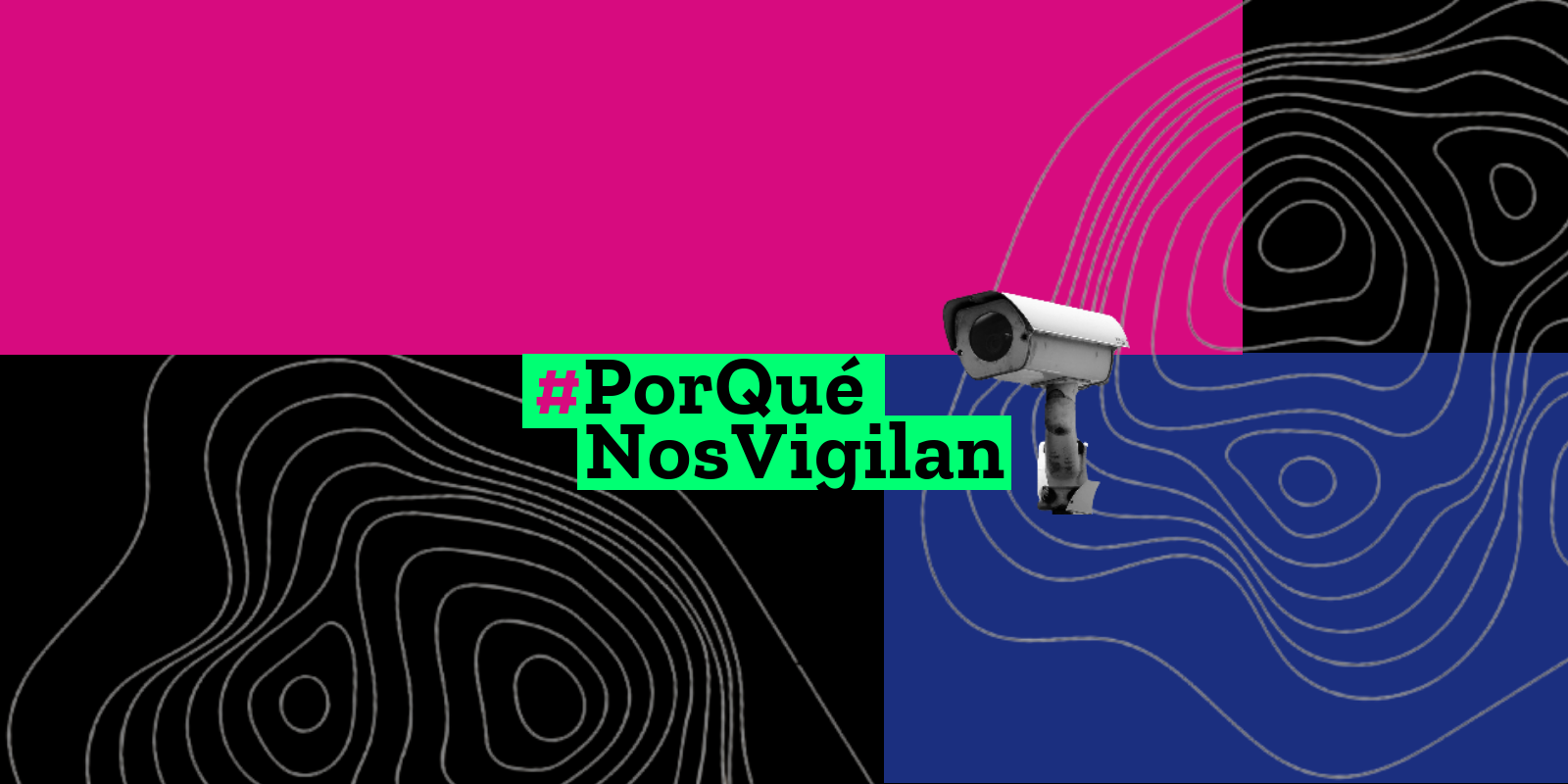In many cities around the world, when you go out in public, you are unknowingly exposing yourself to surveillance, including the use of mass surveillance tools that record, analyze, and store your personal biometric data — your face, your voice, the way you walk, and more. Even if you know you may be under surveillance, most people have no idea how their personal data is being used or who has access to it. And in countries across Latin America, both governments and the companies that develop this type of technology refuse to be transparent, leaving citizens in the dark about the privacy violations and threats they face.
Authorities that deploy mass surveillance technology often repeat a set of narratives to justify its adoption and expansion. We hear that “more technology is always an improvement,” “it’s better for public safety,” and “if you have nothing to hide, you have nothing to fear.” But are these arguments backed by the facts?
It’s important to look at who is making these justifications. Both tech companies and governments have an interest in the “success” of surveillance systems and the power that data brings with it. Other authorities, eager for solutions, may incorporate dangerous new technologies without fully understanding their scope.
Whatever their true intentions may be, we are always the ones impacted. Here we debunk some of the most common false narratives driving the deployment and normalization of mass surveillance tech, and share ways you can fight back.
“Surveillance improves public safety”
The complex realities of life in many Latin American countries, such as crime, violence, and lack of public safety, feed false narratives in favor of surveillance. In this scenario, it is easy for companies and governments to appear to be problem solvers when they argue that more surveillance cameras will create more safe spaces. Yet there is no evidence to show that installing more cameras improves public safety.
What is more, even if a government puts rules in place to control the use of mass surveillance technology, a new administration could change the rules, and a system justified on the basis of “public safety” could be repurposed — including to perpetrate human rights violations against government critics or other targeted and oppressed groups or individuals.
“More technology is always an improvement”
There’s a pervasive fallacy that digital technology can solve all the problems that we face as a society. Although history shows that technological development can lead to changes that boost economic growth and improve the quality of life, not all technologies have a beneficial impact.
When governments or private companies use surveillance cameras and facial recognition technology to identify, single out, and track us everywhere we go, that is plainly incompatible with basic human rights and civil liberties. This dangerous and discriminatory technology is already helping authoritarian governments persecute people all around the world.
That is why we always have to ask: who gets access to this data? How is our personal information used? How is it protected?
“If you have nothing to hide, you have nothing to fear”
Would you feel comfortable if you knew government agents had access to all the personal information on your phone or computer? Probably not. You shouldn’t take mass surveillance systems, especially those that collect and process biometric data, any less seriously.
Privacy is a right guaranteed to all people. Surveilling everyone indiscriminately on the off chance you will catch someone’s illegal behavior conflicts with the presumption of innocence.
Moreover, constant surveillance can create a chilling effect on the citizens, encouraging self-censorship and abstention from activities that are totally legal. Think about attending protests, having your identity as an LGBTQ+ person exposed in a hostile context, and other situations where you may think twice about what you say or do.
“My data is already everywhere anyway”
Yes, a lot of our personal information has already been collected on the internet, but we should be able to decide how it is used. Simply because there are bad actors exploiting our personal information online, it does not mean we should surrender our data to whoever wants it. Furthermore, some of the technology deployed in public spaces may be collecting biometric information that would otherwise be private.
Our data can reveal a lot about our public and private lives. If it ends up in the wrong hands, it can be dangerous, especially for communities and individuals targeted for harassment, discrimination, oppression, and worse. Allowing the deployment of mass surveillance technology would expose more of our personal information, putting everyone’s privacy and safety at risk.
“Surveillance is inevitable”
No, it’s not. There is no reason to accept the use of technology that undermines our fundamental rights. Even taking small actions can lead to big changes in public policy, and our voices are more powerful when we speak out together. Here are ways you can stay informed, and make your voice heard in the decision-making on mass surveillance technology:
- Join our global #BanBS campaign to stop the spread of this threatening technology.
- Follow our Latin America Twitter and Instagram accounts, and join the #PorQuéNosVigilan campaign to increase transparency on the use of surveillance technology in Latin America. We want to know what technologies companies are developing, who is purchasing these systems, and what is happening with the collected data.
- Support our partner’s campaigns to stop mass surveillance around the world, including in Latin America:
- Reclaim your face: an initiative supporting a ban on mass biometric surveillance across the European Union.
- All Out: a European campaign to ban automated recognition of gender and sexual orientation.
- Con mi Cara No: an Argentinian campaign opposing the use of biometric technology for facial recognition.
- No nos vean la cara: a civil society campaign to stop biometric mass surveillance in Mexico.
